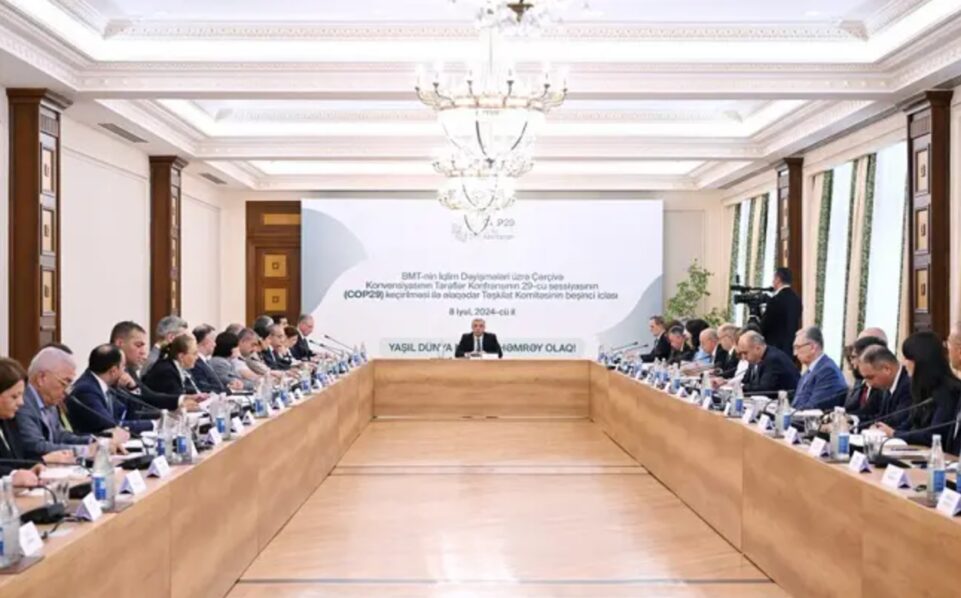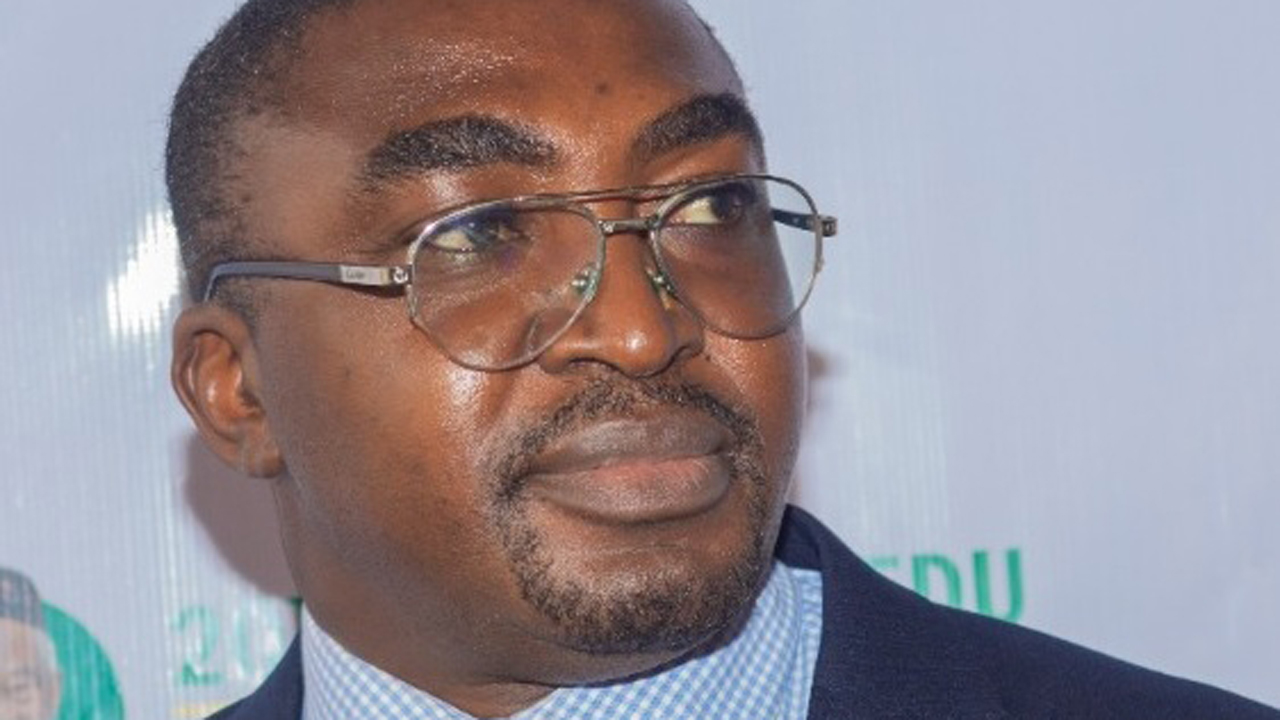
Experts flay Trump’s threat to withdraw U.S. from Paris Accord
As the 29th Conference of Parties (COP29) begins today in Baku, Azerbaijan, Nigeria and other members of the African Group of Negotiators (AGN) have fine-tuned positions centred on adaptation, climate finance, gender equality, transboundary climate change risks and ensuring effective adaptation in Africa.
The negotiators refined Africa’s position in September to stand for Africa’s priorities with incoming AGN co-chair and Kenya’s climate envoy, Ali Mohamed, emphasising that COP29 “must deliver on an ambitious new finance goal that responds to the needs of developing countries, especially Africa, is consistent with 1.5 degree Celsius pathways for both mitigation and adaptation and that does not exacerbate debt distress.”
The African Ministerial Conference on the Environment (AMCEN) and the Committee of African Heads of State on Climate Change (CAHOSCC) endorsed the continent’s positions. AGN’s goal in the COP29 is to reach a fair, equitable and fit-for-purpose new finance goal, as well as reach an agreement on key elements needed to operationalise the global goal on adaptation, loss and damage fund, and Article 6 on carbon markets.
Essentially, the negotiators have set a pathway into the climate finance negotiations at COP29 since finance is a crucial driver of climate action. COP29 is a defining moment as there is a new financial target under the New Collective and Quantified Goal (NCQG) to bridge the climate finance gap, support vulnerable communities and enhance global cooperation.
The strategy highlights the need for increased, predictable, and accessible financing to support climate adaptation and mitigation efforts, particularly in vulnerable regions including Africa. NCQG is poised to take over the $100 million that was agreed by developed country parties in 2010.
The negotiators pointed out the gap between the pledged finance and the actual disbursements highlighting the need for transparent tracking mechanisms to ensure accountability. A key concern was the lack of access to finance for local communities that are most impacted by climate change but are not considered in the funding options.
Specifically, Nigeria is aligning with AGN’s positions and chosen delegates to advance its climate goals. The government has also introduced a climate accountability and transparency portal and reduced spending. The National Council on Climate Change (NCCC), working with the European Union, has trained negotiators to build consensus and represent Nigeria’s interests effectively.
For the Director, Centre for Arid Zone Studies, University of Maiduguri, Prof Daniel Gwary, Nigeria’s top priority should be securing increased adaptation financing. While wealthier nations are primarily responsible for historic emissions, African countries, including Nigeria, suffer disproportionately from climate impacts. Notably, African nations received only 20 per cent of global adaptation finance flows in 2021–2022, a figure far below the 45 per cent allocated to East Asia and the Pacific region.
As Nigeria faces climate impacts like rising temperatures, severe flooding, and drought, adaptation funding is vital to safeguard livelihoods and stimulate economic resilience. He said Nigeria should advocate for increased financial commitments from developed countries, emphasising the importance of grant-based funding and technology transfer.
According to him, COP29 offers a crucial platform to secure commitments for technology transfer, training, and capacity-building programmes that could foster homegrown climate solutions and support green job creation.
Nigeria is enhancing its technological capabilities to fight climate change and the Federal Ministry of Science, Technology, and Innovation (FMSTI) has initiated a needs assessment to identify essential technologies for climate mitigation and adaptation across agriculture, transportation, and biodiversity.
“By expanding partnerships with other countries and international organisations, Nigeria can address these gaps and protect its rich biodiversity. This collaboration is essential, given Nigeria’s high deforestation rate of 3.7 per cent yearly.
Food security also remains a significant concern as climate change disrupts Nigeria’s agricultural systems, which are highly dependent on rainfall. Droughts, floods, and erratic weather patterns have severely impacted crop yields, affecting the livelihoods of 70 per cent of Nigeria’s workforce involved in farming. Through climate-smart agriculture (CSA), Nigeria is working on seed improvement, hybridisation, and climate-resilient crops.
The Federal Ministry of Agriculture and Food Security (FMAFS) is promoting the Nigeria Farmers’ Soil Health Card Scheme (NFSHCS), an initiative to enhance soil fertility, improve productivity, and reduce greenhouse gas emissions. At COP29, Nigeria should seek investment in climate-smart seeds, irrigation systems, agroforestry, and land restoration technologies to address land degradation and desertification challenges.
Nigeria’s energy sector, responsible for around 70 per cent of the country’s greenhouse gas emissions, is also an area of critical focus. The government aims to produce 30 per cent of its electricity from solar and wind power by 2030. Additionally, Nigeria has committed to the Global Renewables and Energy Efficiency Pledge, which targets a tripling of renewable energy and doubling energy efficiency by 2030.
Gwary said: “Nigeria has made strides in renewable energy, with initiatives such as the Renewvia and the Rural Electrification Agency (REA) solar mini-grids in rural areas, and the World Bank and African Development Bank-supported Nigeria Electrification Project (NEP). With these efforts, Nigeria is well-positioned to secure additional partnerships for its energy transition at COP29.
Moreover, reducing emissions from the transportation sector is vital. The transportation industry, a significant carbon emitter, releases approximately 60 million tons of CO2 yearly, a figure expected to rise. At COP26, Nigeria pledged to reach carbon neutrality by 2060 and aims to deploy 13 million electric vehicles (EVs) by 2050, with 100 per cent adoption by 2060.
Gwary said Nigeria needs to improve EV infrastructure to fully embrace electric mobility. At COP29, Nigeria should present its clean transport strategy to garner the necessary funding and expertise.
The Director, Centre for Climate Change and Development, Alex Ekwueme Federal University Ebonyi State, Prof Chukwumerije Okereke, said Baku could be a low-key COP due to ongoing conflict in the Middle East, Russia and Ukraine, as well as the U.S. election. “Nonetheless, it will be a significant summit, especially with the focus on climate finance. One of the key items on the agenda is the NCQG.
There is a need for trillions of dollars to assist the developing countries and make the transition to a greener economy.”According to him, one of the expectations is for COP29 to result in a significant increase in climate change finance to help developing countries tackle climate change, and provide opportunities for other countries like China, South Korea and Gulf states to contribute to the purse.
He said Nigeria should ensure it has a strong voice that will lead to a better outcome and attract climate finance, as well as position itself with credible policies and institutions.
Okereke further said Nigeria has seen devastating flooding, and an increase in other climate events, which compromised the livelihoods of millions of people and the country should use the national adaptation plan and other instruments to attract climate adaptation finance to the country. “Nigeria should be thinking on how to transition itself from over-dependence on fossil fuel to renewable energy,” he added.
MEANWHILE, there is an uneasy calm among the global community that the gains achieved through the Paris Agreement may be undermined by President-elect Donald Trump’s plans to withdraw the United States from the UN Framework Convention on Climate Change (UNFCCC), joining three other countries Iran, Libya and Yemen
outside the landmark climate deal.
The agreement – which then U.S. President, Barack Obama, helped negotiate in 2015 – stipulated that countries could leave a year after notifying their withdrawal from the accord and its actual exit. This would mean the world’s second biggest-emitting country would no longer have to submit a national climate action plan to the United Nations every five years.
However, climate activists said while the news that Trump plans to leave the Paris Agreement could cause initial anxiety at COP29, the world’s majority recognises that climate action does not hinge on who is in power in the U.S., as other countries will step up if the U.S. reneges on its responsibilities, adding that the U.S. will still be held accountable, by their citizens, as well as by governments and people across the world.
Executive Director, Climate Action Network, Tasneem Essop, said: “Trump administration cannot think that it can leave the Paris Agreement, and still come to climate meetings and obstruct progress. We will not allow this obstruction even if the US stays in the Paris Agreement. We will not give up no matter how challenging it becomes; we remain defiant in our fight for climate justice.”
Director, World Resources Institute’s international climate initiative, said, “There are ways, even with a withdrawal, for the U.S. or other parties to be fully engaged” – as the US has been under the UN Convention on Biodiversity, which it never ratified.
U.S. Director, World Resources Institute, Dan Lashof noted that global support for addressing the climate crisis has grown significantly. “Country leaders know that reducing emissions and supercharging clean energy growth strengthens their economies and competitiveness.
“That’s why China has invested heavily in wind, solar and battery manufacturing at home, and supply chains and markets abroad. If Trump pulls out of the Paris Agreement again, it will simply diminish the United States’ influence and give other countries a leg up in the booming clean energy economy,” Lashof said.
He said: “There is no denying that another Trump presidency will stall national efforts to tackle the climate crisis and protect the environment, but most U.S. state, local, and private sector leaders are committed to charging ahead. And you can count on a chorus of world leaders confirming that they won’t turn their back on climate and nature goals.






